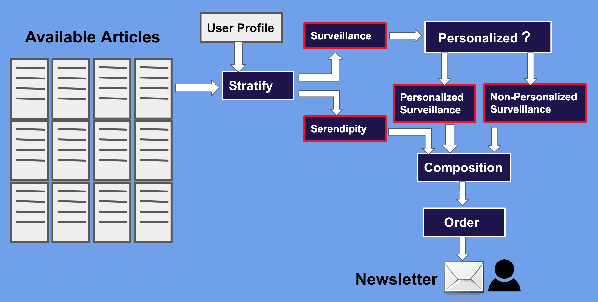Toward the Next Generation of News Recommender Systems
Paper and Code
Mar 11, 2021

This paper proposes a vision and research agenda for the next generation of news recommender systems (RS), called the table d'hote approach. A table d'hote (translates as host's table) meal is a sequence of courses that create a balanced and enjoyable dining experience for a guest. Likewise, we believe news RS should strive to create a similar experience for the users by satisfying the news-diet needs of a user. While extant news RS considers criteria such as diversity and serendipity, and RS bundles have been studied for other contexts such as tourism, table d'hote goes further by ensuring the recommended articles satisfy a diverse set of user needs in the right proportions and in a specific order. In table d'hote, available articles need to be stratified based on the different ways that news can create value for the reader, building from theories and empirical research in journalism and user engagement. Using theories and empirical research from communication on the uses and gratifications (U&G) consumers derive from media, we define two main strata in a table d'hote news RS, each with its own substrata: 1) surveillance, which consists of information the user needs to know, and 2) serendipity, which are the articles offering unexpected surprises. The diversity of the articles according to the defined strata and the order of the articles within the list of recommendations are also two important aspects of the table d'hote in order to give the users the most effective reading experience. We propose our vision, link it to the existing concepts in the RS literature, and identify challenges for future research.
 Add to Chrome
Add to Chrome Add to Firefox
Add to Firefox Add to Edge
Add to Edge